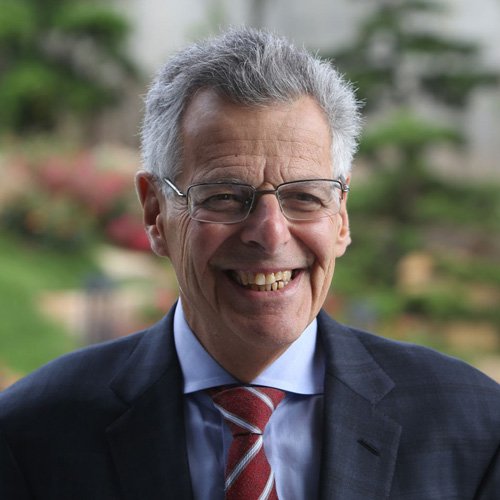
Uncertainty, Artificial Intelligence, and Sustainability
Myron Scholes
-The Nobel Prize in Economic Science 1997
Prize motivation: “for a new method to determine the value of derivatives”
-Professor of Finance, Emeritus, Stanford Graduate School of Business, Stanford University
- Date |
- March 11, 2025
- Time |
- 10:00 - 11:45
- Location |
- National Taiwan Normal University Assembly Hall
【Abstract】
Artificial Intelligence (AI) has wonderful prospects to foster innovations that allow for research and development to proceed faster, become more individualized and more flexible. There is tension, however, between innovation and governance, which prefers to slow down or regulate changes. We discuss the innovation process and the role of AI, using issues in sustainability as an anchor. AI implementations need to adjust to determine what variable to use in main memory, how to establish boundaries and how to handle exceptions. Tail risks are crucial in any implementation of AI or investment programs generally. The middle to the distribution of possible outcomes can be data mined; the new concepts or valuable implementations come from the exceptions, the unusual. The innovation process uses signals and domain expertise to advance research and development. Finance and financial theory provide a great foundation to understand uncertainty. We discuss how to account for time and changes in risks in the use of AI in an uncertain world.
【Speaker Biography】
Professor Myron Scholes is the Frank E. Buck Professor of Finance, Emeritus, at the Stanford Graduate School of Business, a 1997 Nobel Laureate in Economic Sciences, and the co-creator of the globally renowned Black-Scholes options pricing model. Professor Scholes revolutionized the field of finance by developing an innovative method for pricing financial derivatives, establishing a cornerstone of modern financial theory. His extensive research focuses on the impact of uncertainty on asset pricing and options valuation, as well as the influence of tax policies on asset prices, executive compensation design, capital structure, and optimal asset liquidation strategies. His scholarly contributions have not only advanced financial theory but also provided significant guidance for practical applications in the field.
【Agenda】
10:00 - 10:10 Opening Music Performance
10:10 - 10:20 Opening Remarks
10:20 - 11:45 Keynote Speech & Discussion

